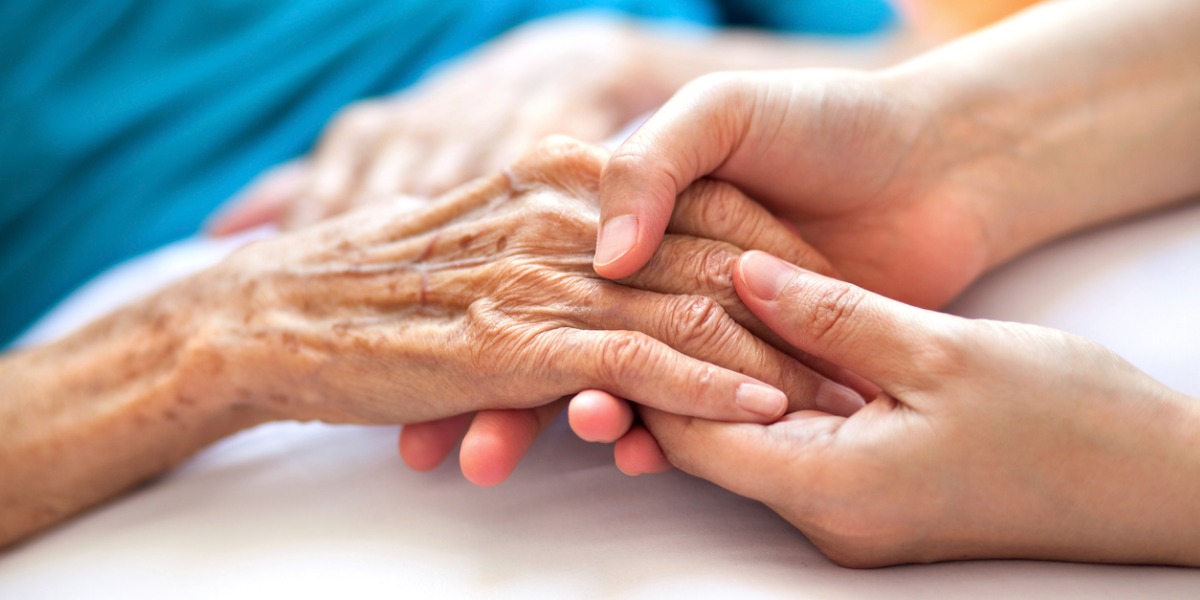
Hospice care is a specialized form of healthcare that includes physical, emotional and spiritual care. It focuses on providing comfort, support, and dignity to individuals who are facing life-limiting illnesses.
The primary goal of hospice care is to enhance the quality of life for patients during their end-of-life journey. To reach this goal, providers must meet a patients’ physical, emotional, and spiritual needs. Let’s explore the critical role of spiritual care in providing a holistic care experience within hospice.
Jump To
- Understanding Hospice Care
- Spiritual Care in Hospice Care
- The Importance of Spiritual Care in Hospice
- Benefits of Spiritual Care
- Integration of Spiritual Care into Hospice Services
- Challenges and Considerations
- Training and Education for Hospice Chaplains
1. Understanding Hospice Care

People often associate hospice care with the end of life, but the focus of hospice is not on death or dying. It is a philosophy of care that emphasizes comfort and the relief of pain and suffering.
It offers emotional support and addresses the physical, emotional, and spiritual needs of patients. Hospice care is available in the patient’s home, a specialized hospice facility, or a long-term care facility.
2. Spiritual Care in Hospice Care Explained

Spiritual support is an essential component of holistic healthcare that focuses on the spiritual well-being of individuals. It is non-denominational support and encompasses the patient’s beliefs, values, and inner sources of strength. These are things that provide meaning and purpose in a person’s life. In the context of hospice care, spiritual support aims to address the spiritual and existential concerns of patients and their families.
3. The Importance of Spiritual Care in Hospice

We cannot overstate the importance of spiritual support in hospice. When facing the end of life, patients often experience a range of spiritual and existential concerns. These may include questions about the meaning of life, the afterlife, forgiveness, and unresolved conflicts. Addressing these concerns is crucial for providing comprehensive care and ensuring a peaceful and dignified end-of-life experience.
End of life spiritual care also recognizes that patients come from diverse cultural and religious backgrounds. Therefore, it is important to respect and accommodate these beliefs, faith traditions and practices. Providers should aim to incorporate them into the plan of care. This respect for diversity ensures that patients feel understood, valued, and supported in their spiritual journey and hospice care experience.
4. Benefits of Spiritual Care

The integration of spiritual care into hospice care services offers several significant benefits:
4.1. Improved Quality of Life
Spiritual care provides comfort and solace to patients. It honors cultural diversity and reduces feelings of fear, anxiety, and existential distress. This, in turn, significantly enhances their quality of life.
4.2. Better Pain and Symptom Management
Patients who receive spiritual care often experience better pain and symptom management. They feel more at ease and less anxious about their care. Patients might need less pain reducing medications or respond better to non-medical pain reducing therapies.
4.3. Enhanced Emotional and Psychological Well-Being
Addressing spiritual concerns helps patients find a sense of peace and acceptance, leading to improved emotional and psychological well-being. This positively affects the mental health of both patients and their families.
Additionally, spiritual beliefs sometimes guide care choices and impact medical decision making. It is important to respect the patient’s choices in this regard. A patient who feels respected feels more confident with their choice to receive hospice care.
4.4. Greater Family Satisfaction
Spiritual care extends to the family members of patients as well. Addressing spiritual concerns reduces distress for family caregivers. They feel better supported, and this contributes to greater overall satisfaction with the hospice care experience.
5. Integration of Spiritual Care into Hospice Services

To provide holistic care in hospice, it is crucial to integrate spiritual care into the overall care plan. Here are some key aspects of this integration:
5.1. Spiritual Assessment
The first step in providing spiritual care is conducting a spiritual assessment. This involves asking patients about their beliefs, values, and any spiritual or religious concerns they may have. A comprehensive understanding of their spiritual needs allows care providers to tailor their approach effectively.
Understanding the patient’s spiritual preferences, values, and beliefs helps create a care plan that meets their needs and goals. Give the patient the time and space they need to provide thoughtful answers and valuable insight.
5.2. Collaboration with Chaplains and Spiritual Counselors
Many hospice programs have chaplains or spiritual counselors on staff or as part of their interdisciplinary team. These professionals undergo training to address spiritual and religious needs. Collaborating with them can be highly beneficial in meeting the spiritual needs of patients.
Also, include the patient’s place of worship and spiritual leaders they know in the care planning process. Collaboration with these individuals helps to keep the patient connected with their faith and their community. It provides comfort and improves quality of life.
5.3. Encouraging Open Dialogue
Encouraging open and non-judgmental dialogue about spiritual concerns is vital. Patients and their families should feel comfortable discussing their beliefs and fears. Care providers should actively listen and provide emotional support.
Display genuine interest and ask open-ended questions. The goal is to encourage the patient to share information honestly and comfortably. Record answers to questions in the medical records, and ensure the patient that all information will remain confidential.
5.4. Offering Rituals and Practices
For those who have religious or spiritual practices, offering the opportunity to engage in rituals, prayer, or meditation can be comforting. Hospice care chaplains and nurses can participate in this. Hospice volunteers and spiritual leaders who the patient has an existing relationship with might also pray or meditate with patients.
If the patient is okay with it, suggest that they spend time alone with loved ones for spiritual reflection and practice.
5.5. Training Caregivers
Caregivers and healthcare professionals benefit by receiving training about the hospice spiritual care component. This includes understanding the basics of different cultures, faiths and belief systems. It also involves developing the skills to address spiritual needs appropriately or refer patients to the chaplain, when appropriate.
Spiritual beliefs often dictate a patient’s end of life choices. At times, the patient might feel more comfortable broaching this topic with a hospice nurse or hospice social worker. Therefore, it is important for everyone on the hospice team to understand the relationship between care choices and spiritual beliefs. This impacts medical documentation and the plan of care.
6. Challenges and Considerations

While spirituality care is a crucial component of hospice, there are challenges and considerations to keep in mind:
6.1. Respect for Diversity
It is essential to respect the diverse beliefs and values of patients. Care providers must approach each case with an open mind and avoid imposing their beliefs on patients.
6.2. Cultural Sensitivity
Understanding the cultural context of a patient’s spirituality is vital. This includes recognizing the importance of rituals, traditions, and practices unique to their culture.
6.3. Balancing Medical Care
Balancing medical care with spiritual support is often challenging. Ensure that you provide holistic care and use medical treatments for pain management according to doctor’s orders.
If you encounter conflicts related to spiritual beliefs, seek guidance from the hospice doctor. Inform the patient’s personal doctor as well. These healthcare professionals should then have an honest conversation with the patient and family caregivers about any impacts of this choice.
6.4. Training and Resources
Making sure hospice care staff have the right training and resources for spirituality is, at times, challenging. Important steps include providing ongoing education and access to spiritual counselors and chaplains. Providing in-person and on-line resources to the hospice team and family caregivers assists with this.
7. Training and Education for Hospice Chaplains

To effectively integrate spiritual support into hospice services, providers require access to comprehensive training and education. This includes:
- Interdisciplinary Training: Collaboration between different members of the hospice team to most effectively address spiritual needs. This includes chaplains, social workers, nurses, and physicians, to address spiritual needs effectively.
- Cultural Competency Training: Understanding and respecting the diverse cultural and religious backgrounds of patients and their families.
- Continuing Education: Keeping up with the latest developments in spiritual care and staying informed about different belief systems and practices.
- Supervision and Support: Offering regular supervision and support to spiritual care providers to address any challenges or emotional impact.
In hospice care, addressing the spiritual needs of patients is not an option; it is an ethical and compassionate necessity. By meeting these needs, we improve the end-of-life experience for people with life-limiting illnesses.
Spiritual care supports physical and emotional care, bringing peace, acceptance, and dignity during difficult times. This is why any quality hospice care program must include spiritual support.
To learn more about Salus’ 5-star rated and accredited hospice care, contact us anytime.

